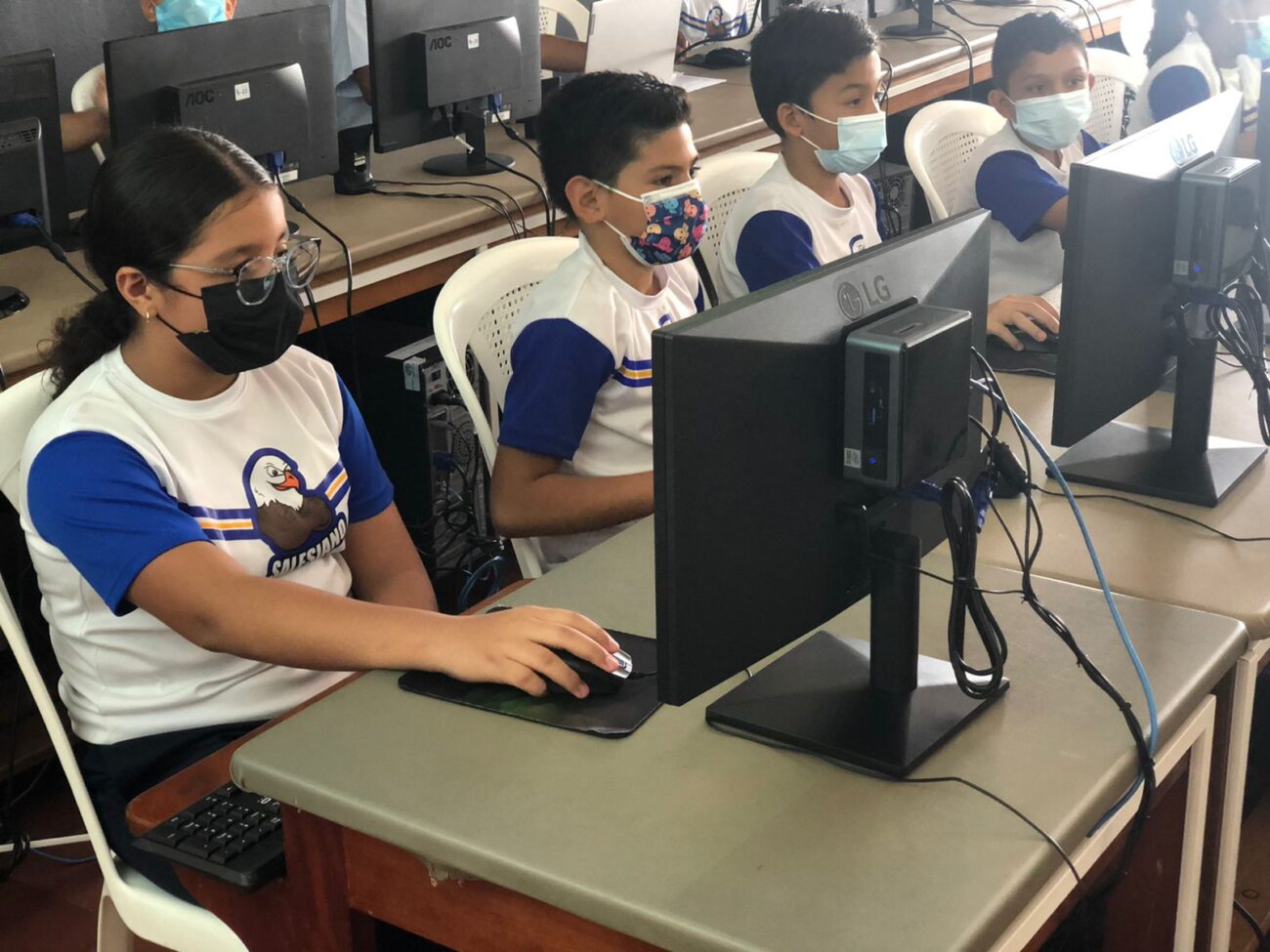NICARAGUA: Students stay in school with technology access

Students at San Juan Bosco Salesian School have access to a new computer lab thanks to donor funding from Salesian Missions
(MissionNewswire) Students at San Juan Bosco Salesian School, located in Granada, Nicaragua, have access to a new computer lab thanks to donor funding from Salesian Missions, the U.S. development arm of the Salesians of Don Bosco. The funds received, together with a contribution from the school, purchased 36 new computers for a computer lab at the preschool and primary school in 2021.
The project benefited 287 students who come from vulnerable households, mostly children whose parents work in the informal market. With the new computer lab, Salesians are able to provide computer literacy training and digital technology access for youth in poverty.
The COVID-19 pandemic has had severe impacts on learning opportunities for Nicaraguans—a country where almost three-quarters of youth suffer from lack of access to quality education. This is far worse compared to its neighbors in Latin America and the Caribbean region, according to the World Bank. Although the enactment of universal free education has led to increased enrollment rates, the quality of education suffers because of a lack of resources.
The Nicaraguan education system needs strengthening and improvements in school infrastructure, teaching material, and modalities of education. The COVID-19 pandemic has made it challenging for schools to deliver education to their students. A recent study showed that the main needs of students are connectivity in homes as well as access to technological tools. Over half of children in Nicaraguan primary schools lack access to the internet while more than 80 percent of secondary students lack access.
A Salesian in Nicaragua explained, “Most children are currently enrolled in a hybrid model of learning, splitting their time equally between in-person and remote learning. The knowledge gained through this new technology access will provide the necessary skills to succeed in a post-COVID economy. Computer literacy is more essential than ever now as societies are rapidly digitizing. Instilling this knowledge will help prevent students from falling behind in their education. The students will become proficient in computer programs and will transfer these skills to their education, becoming more efficient in navigating the technology that is used to deliver the content.”
Access to computers will mitigate school closures and challenges with remote learning, protecting the children’s right to education. UNICEF predicts that over 3 million children will drop out of school in the Latin American/Caribbean region because of the effects of the pandemic. Students who do not have access to a computer or internet at home will be able to utilize the computer lab to complete their schoolwork, thus preventing them from dropping out.
Nicaragua, the poorest country in Central America and the second poorest in the Western Hemisphere, has widespread underemployment and poverty with a quarter of its population living below the poverty line, according to the World Bank. More than 80 percent of Nicaragua’s poor live in remote rural communities where access to basic services is a daily challenge.
Years of widespread poverty have taken their toll and many residents suffer from poor health conditions including HIV/AIDS. In addition, crime, violence against women, gang violence and high unemployment result in challenging economic and social conditions, particularly for young people and women.
###
Sources:
Photo courtesy of Salesian Missions (contact for usage permissions)
Salesian Missions – Nicaragua
World Bank – Nicaragua





